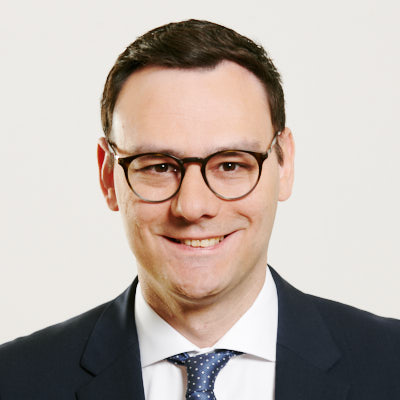1 Background
Events of all kinds are increasingly being offered, not only in person but also online. In recent years, influencers, youtubers, streamers, etc. have created an entirely new industry in the online sector. The content consumed online is diverse and can be offered as a pre-produced recording, as a live event, with or without the additional retrieval of a recording, or as a hybrid. In addition to the place of supply, the type of performance also influences the applicability of VAT exemptions and the reduced VAT rate.
2 German Federal Ministry of Finance letter dated 29 April 2024
In this letter, the tax authorities take, for the first time, a comprehensive stance on online services in the B2C sector. Specifically, the Ministry distinguishes between pre-produced content and live streaming and comments on deemed supplies of services in a chain and service commissions and combinations of these services. The type of performance therefore plays a decisive role in the applicability of the reduced VAT rate and exemptions for educational services and those in the cultural and healthcare sectors. The principles are to be applied to all open cases. On the individual contents:
Pre-produced content: The provision of a recording in digital form via the internet is an electronic service. This is because the provision of the recording, the granting of access and the retrieval via download or stream requires only minimal human involvement. The place of supply is therefore determined by the place of residence of the recipient of the service in accordance with sec. 3a para. 5 sentence 1 of the German VAT Act, provided that the recipient is not a taxable person. The same applies to corresponding content provided by radio and television broadcasters.
Live streaming and hybrid products: The provision of a live streaming of an event by a taxable person (organiser), which takes place in parallel to or instead of a face-to-face event and in real time, is not a service provided electronically. For cultural, artistic, scientific, educational, sporting, entertainment and similar services, sec. 3a para. 3 no. 3 lit. a of the German VAT Act applies. The place of supply in the B2C sector should be determined by the place of residence of the recipient of the service. This statement must be a drafting error, as this view corresponds to the version of the law according to the draft of the annual tax bill draft of 2024 and contradicts the current legal situation. The place of supply is currently (still) where the service is in fact carried out.
Deemed supply chain of services: The digital provision of both live and streaming offerings is increasingly taking place via portals. In addition to traditional events such as concerts, this also applies to services provided by influencers, Youtubers, streamers, etc. The Ministry of Finance's letter clarifies that a deemed supply chain of services may exist in these cases. For suppliers, this means that they provide their services to the portal and the portal, in turn, provides them to the customer.
VAT exemptions and reduced rates for individual services (live or recorded): The VAT exemptions under sec. 4 no. 14 (health), no. 20 letters a and b (art and culture), no. 21 (educational services) and the reduced VAT rate under sec. 12 para. 2 no. 7 lit. a of the German VAT Act (admission authorisation) only apply to live and hybrid events but not to recordings. Recorded or pre-produced content, e.g. from distance learning institutes, is therefore excluded from the VAT exemption. In the case of deemed supply chains of services, the tax authorities maintain their view that personal characteristics must be fulfilled for each service separately and are not transferable to the intermediary (platform).
VAT exemptions and reduced VAT rates for combined services (live and recorded): If the service includes the recording in addition to the live event (with and without the possibility of interaction), it is a supply of its own kind (sui generis), which is subject to the standard VAT rate. It is not possible to split the remuneration. However, if a separate fee is agreed for the recording or a surcharge is paid, this constitutes independent supplies that must be assessed separately in accordance with the principles of the Ministry of Finance's letter. A flat-rate user fee for independent main supplies must be allocated to the individual supplies.
3 Effects on practice
For all providers of combined suplies - especially in the online education sector (e.g. distance learning institutes) - the letter will hit like a bomb. Even the (additional) access to a recording is to constitute a supply of its own kind (sui generis) and completely exclude the VAT exemption or the reduced VAT rate. The grace period granted until 1 July 2024 is disproportionately short. In many cases, current contracts will not contain any agreement on partial supplies, meaning that the VAT treatment will change at the expense of the margin with retroactive effect if the supply (e.g. the course) ends after 30 June 2024. In individual cases, it is now necessary to sound out structuring options in order to either maintain the exemption / reduction or at least minimise the damage.
Only influencers, streamers etc. are in favour of the letter. Their services are often provided to platforms abroad as part of deemed supply chains (commissionaire scheme) without German VAT. Those who have previously paid German VAT can have this VAT refunded by the tax office. Domestic platforms, on the other hand, must check whether they owe VAT as an intermediate link in a supply chain.
Contact:

Dr. Markus Müller, LL.M.
Certified Tax Consultant, Dipl.-Finanzwirt (FH)
Tel: +49 211 54 095 387
E-Mail: markus.mueller@kmlz.de
Certified Tax Consultant, Dipl.-Finanzwirt (FH)
Tel: +49 211 54 095 387
E-Mail: markus.mueller@kmlz.de
As per: 15.05.2024
